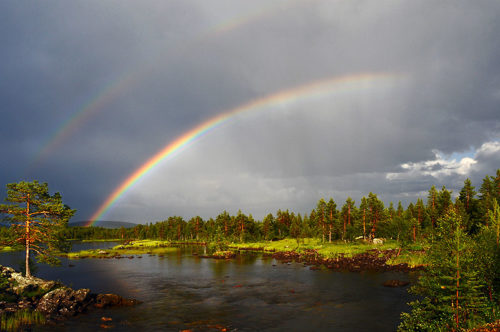
One of the great mysteries that has engaged the minds and hearts of people throughout history is our understanding of what it means to be human. Attempts to define our “human-ness”, and thus our separateness from other animals, by our ability to communicate with language or to make and use tools have been upturned as we learned more about our non-human relatives. Even the difficult-to-measure quality of sentience – the ability to feel and express pain, sadness, joy, and other emotions – and to experience “consciousness”, has been found to be shared by other animals. So what does it mean to be human?
One attribute that does appear to characterize humans is our capacity for complex language combined with our propensity for storytelling. Research indicates that storytelling is not only central to all cultures, but plays a key role in success and survival as a species by providing a shared sense of identity and purpose that is necessary for cooperation.
In his books, Homo Deus and 21 Lessons for the 21st Century, Yuval Noah Harari presents a compelling discussion revealing that, indeed, most of how we come to define ourselves and to function in our complex societies is dependent on our shared stories – stories that tell us what we value, how we relate to each other, how we govern ourselves, how we practice business, how and what we celebrate or mourn, even what we do or don’t eat, and on…..
But as we become a global community cutting across and mixing cultures defined by various different stories, we often choke with the challenge of embracing the different cultures and the stories they represent. We find ourselves in a tumultuous period of time, when our global humanity is still immature and full of conflict – when our stories are butting up against each other and causing angst, while at the same time we face a multitude of critical planetary challenges that cry out for fixes and resolutions that depend on the engagement of a cooperative global humanity.
You could say that we’re in need of a grand story that unites us all and thus allows us to make the next successful leap in our evolution as human beings. But what and where is that story?
Of course, central among the stories that we share, are our religions. And while these religions vary in their particulars, among the common themes to be found in most religions is the importance of compassion, the “sympathetic consciousness of others’ distress together with a desire to alleviate it”. It’s unfortunate that the differing details of our religions often serve the role of dividing us rather than uniting us. But recent developments in interfaith collaborations seek to bridge those divides and commonly focus on community activities and services motivated by shared compassion.
We may see compassion in different ways, some may draw the boundaries of compassion around their own family, or their own kind, or their own species – but most, if not all, of us value some version of compassion. Compassion is one value, one human attribute, that engages both heart and mind and can readily cross most cultural boundaries and perhaps can serve as a foundation that connects us with all life.
In fact, our talk of compassion and other related attributes appears to be growing. Memes readily circulate extolling the virtue of kindness and compassion. Stories that illustrate our acts of compassion as well as the need for our compassion circulate widely. And organizations like The Fetzer Institute work to “build the spiritual foundation for a loving world.” People – tired of bitter political arguments, ugly social media disputes, ongoing racial conflict, endless tragic accounts of cruelty and destruction, and petty judgement – are searching for relief, and that relief comes through a belief in the power of kindness.
But even though compassion has been at the center of our stories for generations and even millennia, its reality and practice has been, to say the least, muddled and highly selective. Beyond the simple lip service, the practice of compassion doesn’t come easily. It takes learning and practice. It takes the willingness to acknowledge where our compassion fails or falls short and to be willing to think differently. And the kind of compassion that’s needed to heal our earth and our wounds and bring us together, will require a powerful story, or perhaps a merger of the common threads of our many stories that bridge our differences, and reveal to us our common human nature – one rooted in compassion.